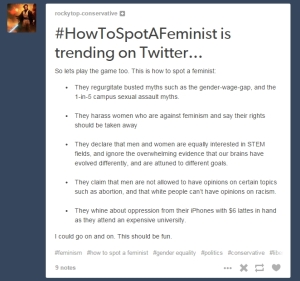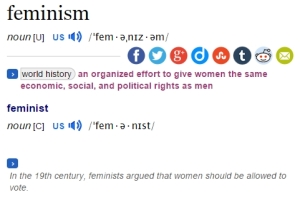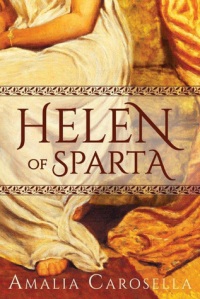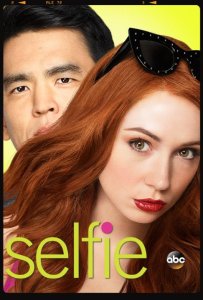In this article I want to give you an overview about different genres that you might write for, or be interested in. I weigh in with the pros and cons of such genres and what it can be like writing for them. Romance, for example has a huge audience, but it’s often the same story over and over again but with slight variations to it. So how can you, as a Romance Author, stick out? I discuss this, and many other points below.
Romance is a tricky genre to get right. Certainly, anyone can write about the typical teen romance, especially if they’ve read a couple of them, but if you want to go outside the normal bounds of what is considered a romance, such as the LGBT route, Asexuality or any other differences, it can take some interesting writing to keep it within the realm of this genre. Not to say that LGBT or Aces are any less legitimate or compelling, just that it isn’t a usual choice. As it is, keeping a hetero relationship fresh and exciting instead of being “another Twilight” is difficult as well. Be prepared to bring new ideas to the table in order to keep your audience enthralled!
The Young Adult genre is not that hard to crack, my first novel was partly this genre and it gave me direction in the book that it otherwise might not have had. Finding yourself is a common topic and it never gets old—everyone finds different things out at different points in time, and the range of ages that this genre covers is a tumultuous time in many people’s lives anyway. They are simultaneously figuring themselves out as well as figuring out the world around them. The only issue is not having the main character figure everything out at the end, because most often this is not a fairytale ending sort of genre. However, feel free to make it what you want. Don’t be afraid to break the mold.
The enthralling suspension and twists and turns of a mystery plot can keep anyone busy—as the reader! Imagine what the author has to do in order to write these books. To be completely honest, much of the mystery genre is full of murder mysteries. The allure of this genre is the rough and tumble cop plodding his way through deception and the red tape that keeps cops on the up-and-up, who finally veers off course in order to solve the mystery. This may come back to bite him, it may not. Either way, the whole idea is to solve the mystery. It’s a beautiful genre, and if I had more patience I might even contribute to it; I personally do not want to invest much of my energy into researching murders and how criminals get caught due to one tiny piece of evidence and a gutsy detective. It may not be the genre for me, but I sure do enjoy watching crime dramas such as Castle unfold on television.
The largest genre out there is Fiction. This encompasses a lot of other genres, if you get right down to it—these days, however, this genre tends to take whatever is a fictional story that doesn’t fall into the sub-categories. At the moment this means books with the target audience of adult age, post-apocalyptic novels that don’t fit in with fantasy, teen or other genres and many, many others. This isn’t a terrible genre, in fact it’s one of the best! However, it does give you a lot more freedom, with hardly any focus other than ‘this didn’t really happen’. For someone like me, who finds it easier to write as an escape, this genre often deals with aspects of life I would rather leave behind. Because of that, I don’t venture too far into this genre.
Sci-fi and Fantasy are my favourite genres to write in. I personally find them to be the easiest to write, as I can escape into worlds of my own creation, superpowers and things I wish were real but sadly aren’t. I feel so free to come up with whatever I want out of plots, sub-plots and varieties of people. However, there are some parts of these genres that can be quite hard to work around. In the Science Fiction genre, for instance, some modicum of knowledge about space is usually required. At the very least physics as we know it and science in general is a great foundation. At least in the Fantasy genre there’s almost complete freedom to ignore science. Not so much if you’re going for strict Sci-fi. If you’re up for blending the two genres, it then gets interesting. You have exceptions to rules more and more often. Needless to say this genre has boundless room for creativity and originality; however it can also be hazardous terrain if you’re not willing to put some thought into your writing.
While I do label Fiction as the largest genre out there, Non-Fiction also has quite a large scope. The unfortunate side, I find, to Non-Fiction is the creativity is lacking. You’re writing about either something, someone or an event that happened in the real world. Listing facts and coming to conclusions about things. It all seems rather boring; however these books also make great references. For example, self-help books can fall into this category. Helpful information can come in the form of encyclopedias and reference guides. While writing for this genre may not hold the escapist’s heart and soul, it certainly isn’t a genre that shouldn’t exist. This is the genre for passing on knowledge in the purest form; this is the most noble of the genres.
Erotica was a small genre—when I was working at a book store we had a tiny little four foot section that didn’t have very much in it. We often had to seed other books into it that didn’t really fit that description. By the end of my stint there, the section was nearly overflowing. What turned it around? More people willing to write for this genre. More people who don’t find it despicable or not okay to read. So this genre has grown to a size where mentioning it as a valid genre is relatively commonplace. So what is Erotica? It’s the sex books, right? Partially. Erotica isn’t always just about sex. That may be the whole reason for reading it, but there are plots and even though they are often predictable and just around as an excuse to write the sexy scenes, it still draws enough of a fanbase that it’s worth discussing. The downside to this genre? Often you’re a ghostwriter. Whether you are or are not, it doesn’t seem to matter because all of the characters are unimaginative, have a one-track mind and are often 2-dimensional. The upside? You get to write adventuresome scenes dealing with a topic that is so often only implied (if that) in other novels.
Genres are all up to the individual. Even though I would never find myself writing a Non-Fiction book that doesn’t mean that it isn’t someone else’s forte. I hope that this guide gives a somewhat helpful look into what writing for each one is like, so you might find it easier to figure out where your heart lies. For me, I love Science Fiction and Fantasy, but I dabble here and there in other genres so that way I don’t get sick of writing the same thing over and over again. It’s okay to not just stick to one genre—it’s okay to just write for one genre. You’re the writer, follow your pen!



 Soon after those who believe as I do that feminism is not a dirty word, nor is it misandry incarnate, spoke up within the hashtag, attempting to set the record straight. While I agree with trying to speak out about the misinformation being spread about feminism and its definition, as shown below, I also feel as though the term has adapted as many do during culture changes.
Soon after those who believe as I do that feminism is not a dirty word, nor is it misandry incarnate, spoke up within the hashtag, attempting to set the record straight. While I agree with trying to speak out about the misinformation being spread about feminism and its definition, as shown below, I also feel as though the term has adapted as many do during culture changes. 













